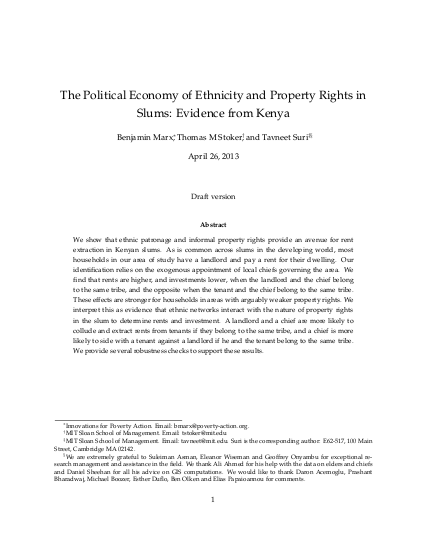
We show that ethnic patronage and informal property rights provide an avenue for rent extraction in Kenyan slums. As is common across slums in the developing world, most households in our area of study have a landlord and pay a rent for their dwelling. Our identification relies on the exogenous appointment of local chiefs governing the area.
We find that rents are higher, and investments lower, when the landlord and the chief belong to the same tribe, and the opposite when the tenant and the chief belong to the same tribe. These effects are stronger for households in areas with arguably weaker property rights. We interpret this as evidence that ethnic networks interact with the nature of property rights in the slum to determine rents and investment. A landlord and a chief are more likely to collude and extract rents from tenants if they belong to the same tribe, and a chief is more likely to side with a tenant against a landlord if he and the tenant belong to the same tribe. We provide several robustness checks to support these results.
Resource collections
- UN Habitat - Urban Response Collection
- Urban Response - Urban Crisis Preparedness and Risk Reduction
- Urban Response Collection - Community Engagement and Social Cohesion
- Urban Response Collection - Economic Recovery
- Urban Response Collection - Environment and Climate Change
- Urban Response Collection - Housing, Land and Property
- Urban Response Collection - Urban Crisis Response, Recovery and Reconstruction
- Urban Response Collection - Urban Resilience